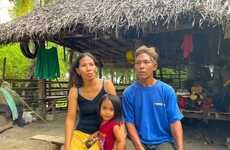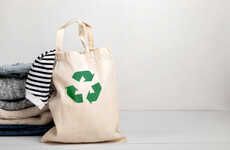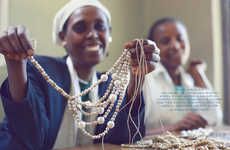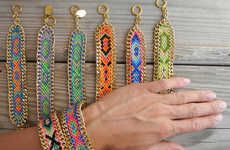
Afesip Fair Fashion Creates Design and Clothing Products in Cambodia
Tiana Reid — January 22, 2013 — Social Good
References: fairfashioncambodia.org & facebook
Founded in 2003, Afesip Fair Fashion (AFF) works in and around commercial sexual exploitation (CSE) in Cambodia. The social enterprise, which is based in Phnom Penh, offers job training and fair trade employment. As a company with several bottom lines, products created by the producers are for sale and range from a home collection that includes pillows, aprons, drapes and more to men and women's clothing and accessories.
AFF's model is one that is growing in prominence whether it's through a cooperative or a loose cooperative-like organization that promotes economic self-sustainability through economic means while at the same time offering other programs more broadly related to social and personal life.
Contact Information
Afesip Fair Fashion website
Afesip on Facebook
Afesip on Twitter
AFF's model is one that is growing in prominence whether it's through a cooperative or a loose cooperative-like organization that promotes economic self-sustainability through economic means while at the same time offering other programs more broadly related to social and personal life.
Contact Information
Afesip Fair Fashion website
Afesip on Facebook
Afesip on Twitter
Trend Themes
1. Fair Trade Empowerment - Incorporating fair trade principles with empowerment programs could create opportunities for marginalized communities to gain economic self-sustainability.
2. Cooperative-based Organization Development - Developing cooperative-based organizations that promote economic self-sustainability while also offering related programs could become a growing trend.
3. Ethical Fashion Production - The production of ethical fashion items, such as those made by Afesip Fair Fashion, could gain popularity as consumers prioritize sustainability and social responsibility in their purchasing decisions.
Industry Implications
1. Fashion - The fashion industry could become disrupted by a growing demand for ethical and sustainable fashion products made by marginalized communities.
2. Social Enterprise - The social enterprise industry could capitalize on the growing trend of incorporating fair trade principles with empowerment programs to promote economic self-sustainability.
3. Nonprofit - Nonprofits working in international development could explore cooperative-based organization development to promote long-term economic sustainability in communities.
2.1
Score
Popularity
Activity
Freshness























